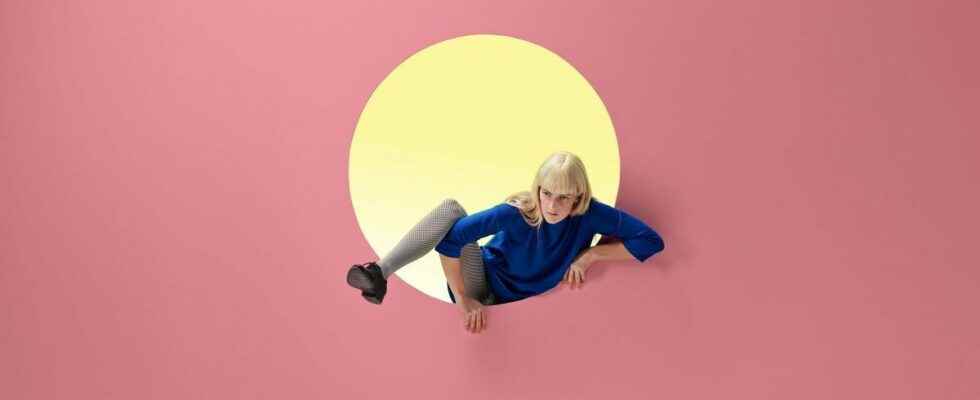Posted ,
Reading 3 mins.
in collaboration with
Sabrina Philippe (Psychologist)
According to an English study, half of young people would completely change their personality on social networks to give the impression that their life is more exciting than in reality. A phenomenon deciphered by Sabrina Philippe, psychologist and member of the committee of experts of Doctissimo.
A new study commissioned by Adobe, carried out by the British online polling institute OnePoll and relayed by The Independent showed that half of young people use social networks to make their life more attractive than it really is, or even to create a fake personality. Half of those surveyed claim to have a alter ego secrecy, a fake self on social networks (Instagram, TikTok or Facebook).
The change of personality on the networks: a disease of the 21st century
Conducted among 1,000 people aged 18 to 25, the study reveals rather worrying results on the mental health of young people.
58% of young people surveyed believe that being present on the networks makes them feel better about themselves. 40% of them believe that being comfortable in their own skin comes with age. They are 34% to feel more confident there by taking on a role, or even by adopting a false personality. One out of 5 young people does not like to expose their true personality on social networks.
“Screens (series, applications, etc.) in general are transforming our personalities, it’s not just social networks”, comments Sabrina Philippe, psychologist and author of “All Fake Self! This virtual world that makes us fake” published by Tredaniel La Maisnie. “If young people are the most affected, those who grew up without screens are still impacted. There is a change in behavior in older people and a change in personality in younger people”she explains.
The “delta between reality and virtual”, creator of suffering
According to the study, this brutal change on social networks, and more generally in front of screens, has its origin in deep ills. Among them are the lack of self-confidence for 55% of respondents, pressure from society (34%) and the judgment of others (42%).
“The screens press on low self-esteem, since they show a world that does not exist. This is why the virtual today is moving further and further away from reality. Before, it was not uncommon for a friend to say on Facebook that he was not well. Today, it’s over: everyone is fine on the networks. This is neither acceptable nor understandable”, observes Sabrina Philippe.
The psychologist points to the current atmosphere: “We live in a society where communication is ultra-positive and where there is an escalation of a certain success whatever the field, which does not fit with the reality of our lives, and the reality of young people. We all have moods, feelings that cross us, anxieties, sadness. It is impossible to always be well”.
According to Sabrina Philippe, it is “this delta between reality and the virtual” which creates suffering among young people. But this suffering cannot beneither expressed nor conscious. There is no more space to think, no more space to be oneself. Young people therefore cut themselves off from their interiority, and that is how they will change their personality”. she concludes.
The liberating power of social media
However, the study is keen to show the benefits of social networks. Considered as a real tool for expression, the networks also make it possible to free the voice of young people (and those not so young), through different fields. In the poll, music (30%) and fashion (27%) were named as the two best ways to show your true personality on the networks.
These tools also allow young people to be positively inspired by public figures. Harry Styles, Zendaya and David Bowie appear in the top 20. For half of the respondents, they encourage them to refocus on what is important to them. 45% of them believe that their favorite personalities encourage them to be more creative.
“We know we’re in a new era of self-expression and the next generation is more likely than ever to break down barriers and make their own rules, but they can sometimes feel intimidated by the real world”explains Simon Morris, vice-president of marketing of Adobe.
